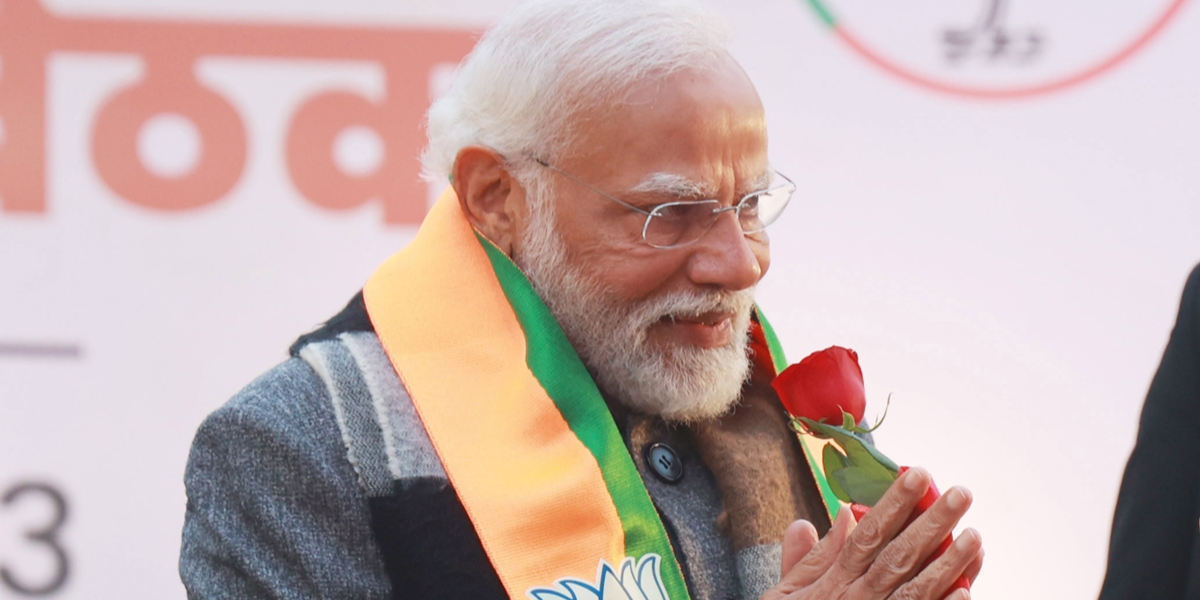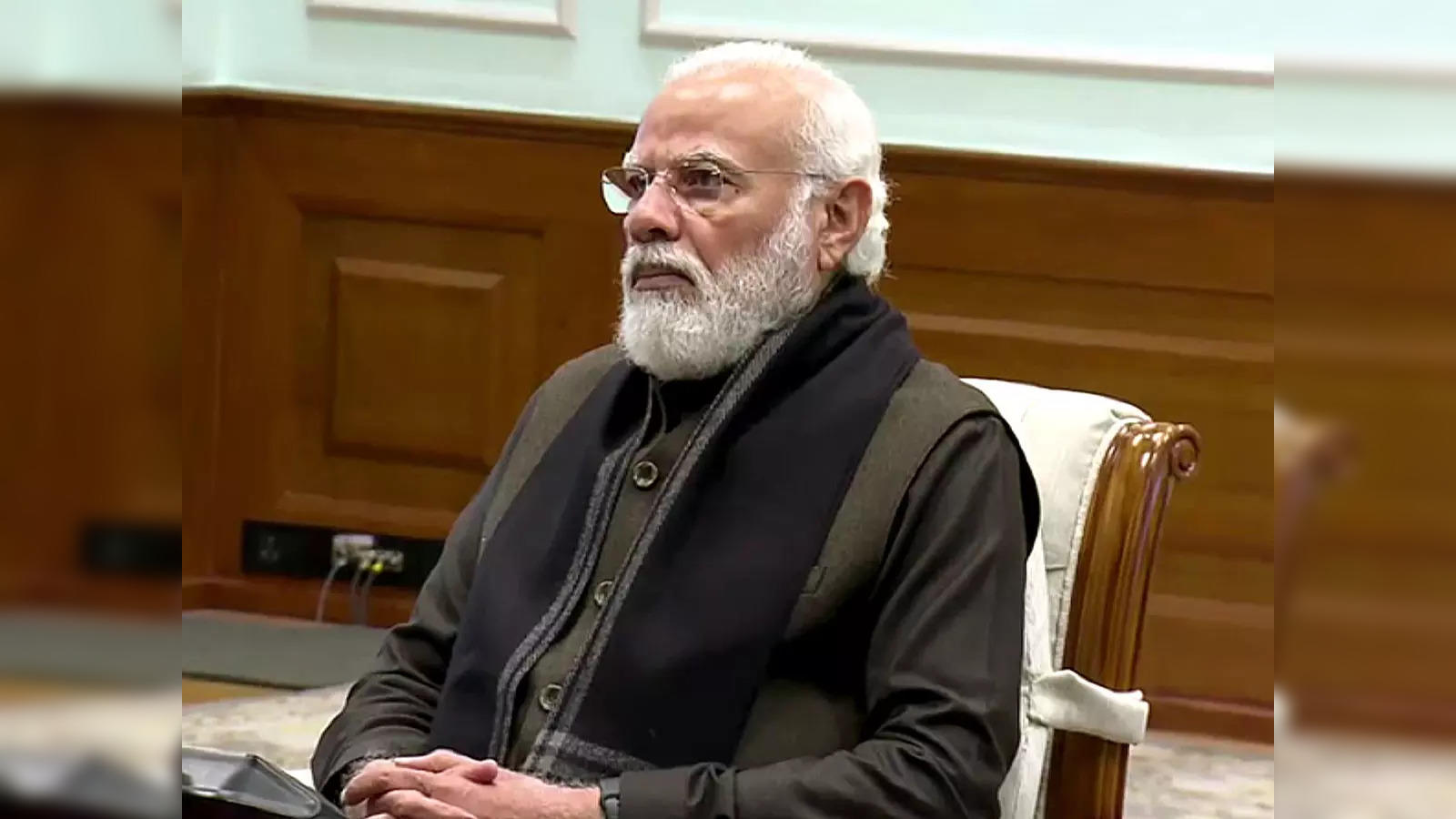Electoral bonds, a mystery form of funding for elections that has generated hundreds of millions of dollars in earnings for political parties, particularly the Bharatiya Janata Party (BJP), which is now in power, were banned by the Supreme Court of India on Thursday.
It was announced that the court has reached a decision about a petition that has been underway for the bonds to be canceled. A thorough investigation has been conducted into the scam, and in November, the highest court stated that the bonds “put a premium on opacity” and had the potential to be “misused for money laundering.”
The decision of the court could have a significant impact on the manner in which India’s upcoming general elections, which are scheduled to take place between March and May, are fought; the extent to which untraceable money plays a role in the polls; and who has the resources to dominate the political landscape.
In accordance with the electoral bond system that was implemented by the administration of Prime Minister Narendra Modi in 2018, these bonds are required to be purchased from the State Bank of India (SBI), however they can be anonymously contributed to political parties within the country.
It is possible that major contributors would be dissuaded from using electoral bonds to donate to opposition parties, according to opponents. Although donors who use electoral bonds are nominally anonymous, the fact that the State Bank of India (SBI) is a public sector bank effectively provides the governing party unfettered access to its data.
Furthermore, in 2017, the Reserve Bank of India (RBI), which is India’s national bank, issued a warning to the Modi government that the bonds could be misused by shell businesses in order to “facilitate money laundering.” The mechanism was referred to as “a retrograde step as far as transparency of donations is concerned” by the Election Commission of India (ECI) in the year 2019.
Through the use of these bonds, covert contributors have contributed almost 16,000 crore rupees, which is equivalent to more than $1.9 billion, to political parties since 2018. From 2018 until March 2022, the Association for Democratic Reforms (ADR), a nongovernmental organization, conducted an analysis of the time in which 57 percent of donations made through electoral bonds, which amounted to around $600 million, were given to Modi’s Bharatiya Janata Party (BJP).
Why are electoral bonds considered to be “undemocratic” and what is the mechanism behind their operation?
What are electoral bonds?
“Bearer” instruments, such as currency notes, are what electoral bonds, also known as EBs, are. They are offered for sale in the following denominations: one thousand rupees, which is equivalent to twelve dollars; ten thousand rupees, which is equal to one hundred twenty dollars; one hundred thousand rupees, which is equal to one thousand two hundred dollars; and ten million rupees, which is equal to one hundred twenty thousand dollars. It is possible for individuals, groups, or corporate organizations to purchase them and then donate them to the organization of their choosing. After 15 days, the organization will be able to redeem them without incurring any interest charges.
Despite the fact that parties are obligated to disclose the identities of all donors who contribute more than 20,000 rupees ($240) in cash, the names of individuals who contribute through electronic funds are never obliged to be disclosed, regardless of the amount of money that is contributed.
The use of EBs has become the dominant method of supporting political campaigns ever since they were first introduced. According to a research by the Association for Democratic Reforms (ADR), EBs are responsible for 56 percent of all funding in Indian politics. The fact that they are able to make anonymous financial contributions has contributed to their enormous popularity; yet, they are also cloaked in secrecy, which many people believe is anti-democratic and could provide a cover for corrupt behavior.
When the Modi government introduced the new law that permits this kind of funding, it also eliminated a number of requirements that were intended to improve the transparency of political funding. For example, a previous law that had capped corporate donations was eliminated, companies were no longer required to disclose their donations in their statements, and foreign companies that had previously been prohibited from funding Indian parties were now able to do so through their Indian subsidiaries.
The chief of the Alternative Dispute Resolution (ADR), Major-General Anil Verma, who is retired, stated that the EB makes backdoor lobbying and unrestricted anonymous donations legal. According to Verma, the fact that the identity of the contributors was kept a secret was problematic. “It could be major corporations, or it could be players who are transferring illegal funds through shell companies; we do not know who is donating,” the speaker said. The term “legalized and institutionalized corruption” is used by many people to describe this phenomenon.
How do EBs benefit the BJP?
EB donations have been of the utmost benefit to the Bharatiya Janata Party (BJP). Five hundred and seventy-five percent of the total donations made through EBs between the years 2018 and March 2022 went to the Bharatiya Janata Party (BJP), which amounted to 52.71 billion rupees (about $635 million). In comparison, the Indian National Congress, which is the next largest party, received 9.52 billion rupees, which is equivalent to almost $115 million.
According to the provisions of the EB, only the SBI is authorized to sell these bonds. Many people believe that this ultimately grants unfettered power to the government that is in power at the time.
Raghuram Rajan, an economist and a former governor of the Reserve Bank of India, authored an essay for The Times of India in which he stated, “Since the bond is issued by a public sector bank, an unprincipled government might get to know the list of donors and recipients.” An additional statement made by Rajan stated that “given the carrots and sticks at the disposal of the government, very few individuals or corporations would risk donating large sums of money to the opposition through these bonds.”
EBs have also had a role in the BJP’s ability to dominate the election process. “They might be called electoral bonds, but the rules don’t say that the money must be used only for elections,” said Lokesh Batra, a retired Indian Navy commodore who has been leading a campaign asking for greater openness in electoral spending. Batra has been a driving force behind the need for more transparency in electoral funding. Therefore, whomever receives a greater sum of money can use that money toward the purchase of media space and the enhancement of advertising. After you get the money, you are free to utilize it wherever you want,” he continued.
The disparity in the amount of money collected by the Bharatiya Janata Party (BJP) and the Congress, which is the party that is closest to it, offers as an illustration of the unequal playing field that EBs have created, according to opponents. An example of this would be the state assembly elections that took place in the southern state of Karnataka in May 2023. These elections pitted the Congress and the BJP against each other. The BJP spent 1.97 billion rupees ($24 million), according to affidavits that were submitted to the Election Commission of India (ECI) by both parties. In comparison, the Congress spent 1.36 billion rupees ($16 million).
Additionally, the Modi government has the authority to determine the timing of the sales of these bonds. The government disregarded its laws and allowed contributors to purchase these bonds on the eve of two critical elections in May and November of 2018. Although the rules of the EB theoretically only authorize the sale of bonds during the first ten days of each new quarter, which are in January, April, July, and October, the government did not restrict the selling of bonds during these times. In the case that is now being heard by the Supreme Court, this is a component of the case.
Why else have EBs been criticised?
It has been argued that the establishment of EBs opens the door to “legalized corruption” because they allow for unrestricted and anonymous payments from any source. This opens the door for corporate donors to essentially sponsor the governing party and influence the decisions that are made by the government.
“Donors, obviously, view these anonymous donations as a ‘investment,'” said Verma, who works for the Association for Disaster Relief.
Furthermore, he stated that the implementation of EBs has resulted in the emergence of uncertainties regarding the degree to which elections are truly free and fair. The concept of equality in electoral politics has been eroded as a result of electoral bonds. “Regardless of who is in power, the majority of donations are given to the party that is currently in power,” he stated.
According to Batra, “it appears that the government’s priority has been to keep the identities of the donors and parties secret from the moment it was introduced.”
Who is challenging EBs in the Supreme Court?
Two non-governmental organizations (NGOs) called ADR and Common Cause, along with the Communist Party of India (Marxist), submitted two different petitions to the Supreme Court of India in 2017, and at a later date in 2018, they urged the court to put an end to the EB system.
In November 2023, the court stated that it had ended hearings in the petitions challenging the bond system. But now, six years later, the court has finally proclaimed its verdict in these cases. This announcement came several months after the court made the announcement.
At the time, it was stated that the EB system had “serious deficiencies,” that it had produced a “information black hole,” and that it “has to be removed” because it places “a premium on opacity.”
This has not prevented substantial sales of these bonds from taking place. From January 2nd to January 11th, the most recent batch of EBs was being sold at a total of 29 different sites across the country. There is a high probability that the majority of the funding for political campaigns of parties in the run-up to this year’s general elections will come from this particular sum of money.



